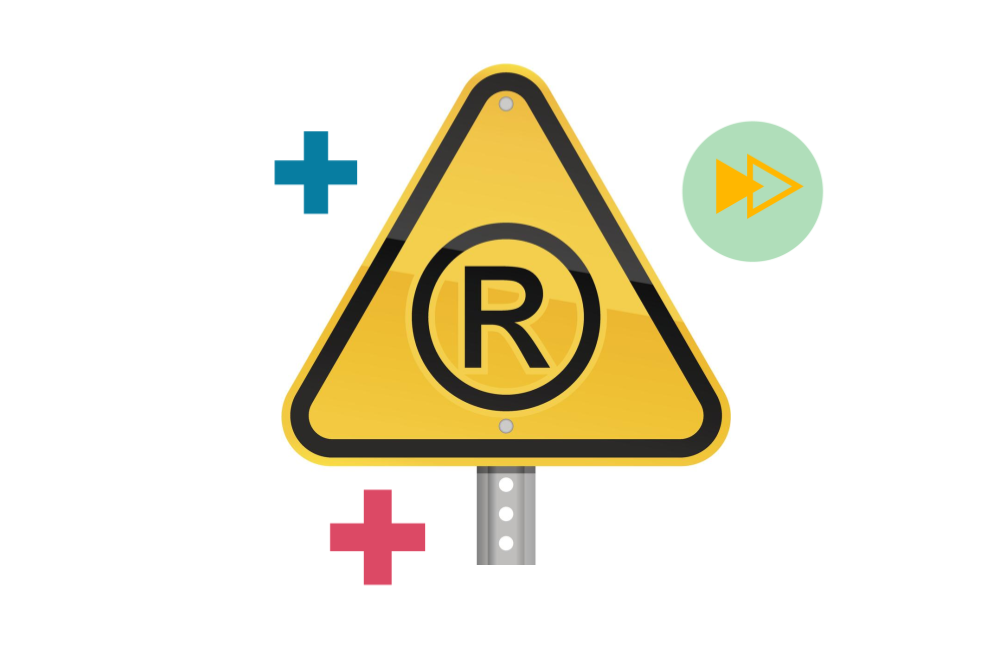
Author Matt Sammon
Securing registration for your trade marks is an important step in building your business and protecting your brand, however, securing registration isn’t the end of the story – the loss of trade mark rights is a real threat. How you use your trade mark and how you enforce those rights can contribute to the long term protection of your trade marks. Even the big brands have made mistakes and there are a number of high profile cases where valuable trade mark rights have been lost.
Having a trade mark revoked can be a significant blow to any business as trade marks often account for a significant proportion of the value of a company. In this article, we’ll look at some of the cases where trade mark rights have been lost and provide an overview of the risks to your trade mark registrations and some tips to ensure protection is maintained.
3 Key Types of Trade Mark Revocation
Once you have secured registration there are a number of ways that the registration can be attacked by third parties which may lead to a brand’s trade mark rights being lost or revoked. Below we explain the main ways that brand’s may have their trade marks revoked and share proactive tips to prevent the loss of trade mark rights for your business
- Use it or lose it
If a trade mark registration is not put to genuine use for the goods for which it is registered in the 5 years after registration, or any other uninterrupted period of 5 years, then a third party can apply to revoke the registration making it available for others to use.
Every trade mark must be used in the form in which it is registered or in a form that does not alter the distinctive character of the mark as registered. We often see instances where logo marks are changed over time, or additional elements added to the mark that was registered meaning that the company is not using the mark as registered. In cases like this it can often be remedied by filing additional applications, but its important to review your use and your registrations regularly to ensure that any divergence does not put your rights at risk or result in the loss of trade mark rights.
Tip! Always be proactive when it comes to managing your trade mark portfolio, conducting a regular IP Audit will ensure that any risks are identified and can be remedied.
It is also important to note that in the UK when filing a trade mark application it is necessary to make a declaration that you have a genuine intention to use the trade mark you are applying for. If this is not the case and a third party can prove it then the registration can be invalidated on the grounds of non-use.
Trade Mark Revocation Example: BANKSY The Flower Bomber
The infamous street artists BANKSY has suffered a number of losses to his trade mark portfolio of late. Perhaps the most well-known is his Flower Bomber work which first appeared in Bethlehem.
Whilst the image is protected by copyright, Banksy cannot enforce copyright without revealing his identity. Consequently, his company have sought protection for a number of works as trade marks. However, a recent ruling by the EU Courts has declared the trade mark invalid on the grounds that the owners did not have a genuine intention to use the trade mark.
Whilst the circumstances of this case are rather unusual it does highlight the need to think carefully about the best way to protect intellectual property and carefully consider what to file as a trade mark application. Why not read about the differences between copyright and trade mark protection to identify the right next steps for your brand’s intellectual property.
2. Your trade mark has become generic
The fundamental purpose of a trade mark is to differentiate your goods and/or services from those of your competitors. This is no longer possible if your trade mark becomes the generic term in the trade for those goods or services. You cannot register generic terms as trade marks and likewise if a registered trade mark becomes generic as a result of ‘acts or inactivity’ of the registered proprietor, then it can be revoked by third parties.
In order to prevent your trade mark becoming generic you need to defend its use in the marketplace and at least attempt to stop others from using the mark as a generic term. When generic use is made owners need to contact the owners and notify them that the rights are protected and request that such use stop immediately. This is something your IP Advisors can assist with. It is also prudent to notify consumers that the mark is registered.
Some well-known marks that have become generic include ESCALATOR, ASPIRIN, LINOLEUM and YO-YO which were all once registered trade marks, but each is now free for all to use as a generic term. It is important that before you commence use of a trade mark or a seemingly generic term that you check that it is not in fact registered. Some very well known terms that many would assume to be generic are not, PERSPEX, HOOVER and VELCRO are all registered trade marks and use without permission of the owner could leave you liable to trade mark infringement.
Generic Trade Mark Case: Costco vs Tiffany & Co.
There is currently an ongoing battle in the USA between Costco and Tiffany & Co over the use of the trade mark TIFFANY. Costco claim that the term is now a generic term for a solitaire-style ring comprising a diamond mounted on a single band with six prongs. Clearly if Tiffany & Co were to lose their registration for the trade mark TIFFANY the cost to the company would be significant and their market position significantly weakened!
3. Your trade mark is liable to mislead the public as to the nature, quality or geographical origin of the goods or services
If you use your trade mark in a manner that is liable to mislead consumers then that registration will become vulnerable to attack by third parties. For example, if your trade mark suggests that the goods are made from a specific material or that the goods come from a particular location and this is not the case, then your trade mark is at risk and you may lose your trade mark rights.
Some examples of lost trade marks rights as a result of ‘misleading the public’ grounds include:
FILET-O-FISH – Deceptive for any goods that are not a fillet.
CAFFE VELOCE – Rejected for tea, cocoa and artificial coffee as the consumer would assume the goods include coffee. Whilst the owners can protect the mark for their coffee products, they are not able to protect it for other non-coffee products.
MOVENPICK OF SWITZERLAND – the registration was cancelled for a range of drinks products because the goods were produced in Germany, not Switzerland.
Many trade marks seek to inform the consumer about the goods and services to which they apply. There is nothing wrong with this, but its important to ensure that the link between the mark and the goods remains accurate or you risk losing your registration – and confusing your customers!
If there are changes in your business that give rise to a risk that your trade mark is misleading then its important to address these issues as soon as possible. This might be by filing a new trade mark or addressing the issues that put the mark at risk. If you have any concerns on this matter consult with an experienced Trade Mark Attorney who will provide accurate guidance relevant to your IP.
Maximise The Value Of Your Trade Marks
When it comes to trade marks and all forms of Intellectual Property its important to have processes in place to manage these rights. Successful businesses need to do more than simply protecting their rights. A good intellectual property strategy goes beyond identifying and protecting rights to look ensure that those rights are managed and enforced to ensure the business maximises the value from Intellectual Property. At Sonder IP we can assist with every step of the process from identifying rights to registering, managing, and enforcing your rights.
We create real IP value
From the everyday to the IP emergency, our accomplished Chartered Trade Mark Attorneys and IP Solicitors are driven to get the very best outcome for every brief for every client, every time! Sonder & Clay are a full service IP law firm with proven expertise and results in IP protection, strategy, disputes, and exploitation. Learn more about our IP services or get in touch with us for a complimentary IP audit today.



